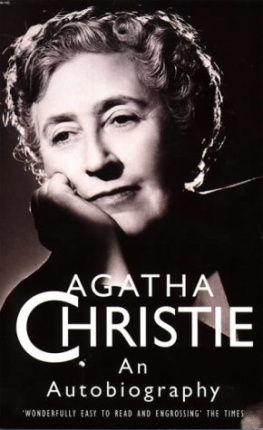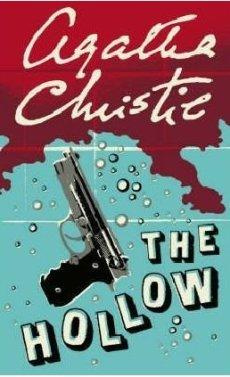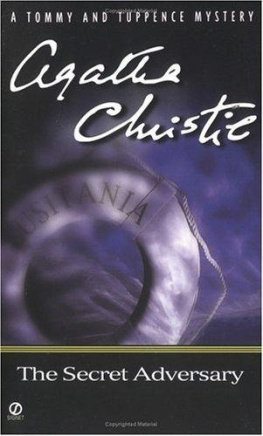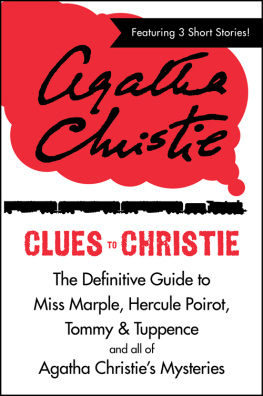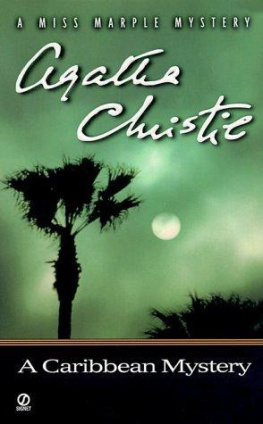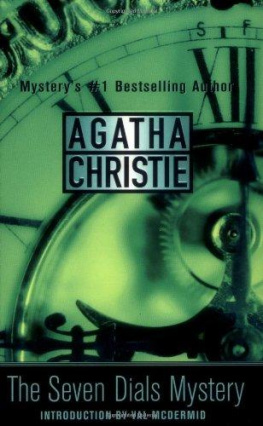Agatha Christie - The Sittaford Mystery (Agatha Christie Mysteries)
Here you can read online Agatha Christie - The Sittaford Mystery (Agatha Christie Mysteries) full text of the book (entire story) in english for free. Download pdf and epub, get meaning, cover and reviews about this ebook. year: 1931, genre: Detective and thriller. Description of the work, (preface) as well as reviews are available. Best literature library LitArk.com created for fans of good reading and offers a wide selection of genres:
Romance novel
Science fiction
Adventure
Detective
Science
History
Home and family
Prose
Art
Politics
Computer
Non-fiction
Religion
Business
Children
Humor
Choose a favorite category and find really read worthwhile books. Enjoy immersion in the world of imagination, feel the emotions of the characters or learn something new for yourself, make an fascinating discovery.
- Book:The Sittaford Mystery (Agatha Christie Mysteries)
- Author:
- Genre:
- Year:1931
- Rating:3 / 5
- Favourites:Add to favourites
- Your mark:
- 60
- 1
- 2
- 3
- 4
- 5
The Sittaford Mystery (Agatha Christie Mysteries): summary, description and annotation
We offer to read an annotation, description, summary or preface (depends on what the author of the book "The Sittaford Mystery (Agatha Christie Mysteries)" wrote himself). If you haven't found the necessary information about the book — write in the comments, we will try to find it.
The Sittaford Mystery (Agatha Christie Mysteries) — read online for free the complete book (whole text) full work
Below is the text of the book, divided by pages. System saving the place of the last page read, allows you to conveniently read the book "The Sittaford Mystery (Agatha Christie Mysteries)" online for free, without having to search again every time where you left off. Put a bookmark, and you can go to the page where you finished reading at any time.
Font size:
Interval:
Bookmark:
The Sittaford Mystery
THE LAURELS
It takes about half an hour from Exhampton to Exeter by train. At five minutes to twelve Inspector Narracott was ringing the front door bell of The Laurels.
The Laurels was a somewhat dilapidated house, badly in need of a new coat of paint. The garden round it was unkempt and weedy and the gate hung askew on its hinges.
Not too much money about here, thought Inspector Narracott to himself. Evidently hard up.
He was a very fair-minded man, but inquiries seemed to indicate that there was very little possibility of the Captain's having been done to death by an enemy. On the other hand, four people, as far as he could make out, stood to gain a considerable sum by the old man's death. The movements of each of these four people had got to be inquired into. The entry in the hotel register was suggestive, but after all Pearson was quite a common name. Inspector Narracott was anxious not to come to any decision too rapidly and to keep a perfectly open mind whilst covering the preliminary ground as rapidly as possible.
A somewhat slatternly looking maid answered the bell. Good afternoon, said Inspector Narracott. I want to see Mrs Gardner, please. It is in connection with the death of her brother, Captain Trevelyan, at Exhampton.
He purposely did not hand his official card to the maid. The mere fact of his being a police officer, as he knew by experience, would render her awkward and tongue-tied.
She's heard of her brother's death? asked the Inspector casually as the maid drew back to let him into the hall.
Yes, got a telegram she did. From the lawyer, Mr Kirkwood.
Just so, said Inspector Narracott.
The maid ushered him into the drawing-room - a room which, like the outside of the house, was badly in need of a little money spent upon it, but yet, had with all that an air of charm which the Inspector felt without being able to particularize the why and wherefore of it.
Must have been a shock to your mistress, he observed. The girl seemed a little vague about that, he noticed. She didn't see much of him, was her answer.
Shut the door and come here, said Inspector Narracott. He was anxious to try the effect of a surprise attack.
Did the telegram say that it was murder? he asked.
Murder!
The girl's eyes opened wide, a mixture of horror and intense enjoyment in them. Murdered was he?
Ah! said Inspector Narracott, I thought you hadn't heard that. Mr Kirkwood didn't want to break the news too abruptly to your mistress, but you see, my dear - what is your name, by the way?
Beatrice, sir.
Well, you see, Beatrice, it will be in the evening papers tonight.
Well, I never, said Beatrice. Murdered. 'orrible, isn't it? Did they bash his head in or shoot him or what?
The Inspector satisfied her passion for detail, then added casually, I believe there was some idea of your mistress going over to Exhampton yesterday afternoon. But I suppose the weather was too bad for her.
I never heard anything about it, sir, said Beatrice. I think you must have made a mistake. The mistress went out in the afternoon to do some shopping and then she went to the Pictures.
What time did she get in?
About six o'clock.
So that let Mrs Gardner out.
I don't know much about the family, he went on in a casual tone. Is Mrs Gardner a widow?
Oh, no, sir, there's master.
What does he do?
He doesn't do anything, said Beatrice staring. He can't. He's an invalid.
An invalid, is he? Oh, I'm sorry. I hadn't heard.
He can't walk. He lies in bed all day. Got a nurse always in the house we have. It isn't every girl what stays on with an 'ospital nurse in the house the whole time. Always wanting trays carried up and pots of tea made.
Must be very trying, said the Inspector soothingly. Now, will you go and tell your mistress please, that I am here from Mr Kirkwood of Exhampton?
Beatrice withdrew and a few minutes later the door opened and a tall, rather commanding woman came into the room. She had an unusual looking face, broad about the brows, and black hair with a touch of gray at the temples, which she wore combed straight back from her forehead. She looked at the Inspector inquiringly.
You have come from Mr Kirkwood at Exhampton?
Not exactly, Mrs Gardner. I put it that way to your maid. Your brother, Captain Trevelyan, was murdered yesterday afternoon and I am Divisional Inspector Narracott in charge of the case.
Whatever else Mrs Gardner might be she was certainly a woman of iron nerve. Her eyes narrowed and she drew in her breath sharply, then motioning the Inspector to a chair and sitting down herself she said:
Murdered! How extraordinary! Who in the world would want to murder Joe?
That is what I'm anxious to find out, Mrs Gardner.
Of course. I hope I shall be able to help you in some way, but I doubt it. My brother and I have seen very little of each other in the last ten years. I know nothing of his friends or of any ties he has formed.
You'll excuse me, Mrs Gardner, but had you and your brother quarreled?
No - not quarreled. I think estranged would be a better word to describe the position between us. I don't want to go into family details, but my brother rather resented my marriage. Brothers, I think, seldom approve of their sisters' choice, but usually, I fancy, they conceal it better than my brother did. My brother, as perhaps you know, had a large fortune left him by an aunt. Both my sister and myself married poor men. When my husband was invalided out of the army after the war with shell shock, a little financial assistance would have been a wonderful relief - would have enabled me to give him an expensive course of treatment which was otherwise denied to him. I asked my brother for a loan which he refused. That, of course, he was perfectly entitled to do. But since then we have met at very rare intervals, and hardly corresponded at all.
It was a clear succinct statement.
An intriguing personality, this Mrs Gardner's, the Inspector thought. Somehow, he couldn't quite make her out. She seemed unnaturally calm, unnaturally ready with her recital of facts. He also noticed that, with all her surprise she asked for no details of her brother's death. That struck him as extraordinary.
I don't know if you want to hear what exactly occurred - at Exhampton, he began.
She frowned.
Must I hear it? My brother was killed, painlessly - I hope.
Quite painlessly, I should say.
Then please spare me any revolting details.
Unnatural, thought the Inspector, decidedly unnatural.
As though she had read his mind she used the very word that he had spoken to himself.
I suppose you think that very unnatural, Inspector, but - I have heard a good many horrors. My husband has told me things when he has had one of his bad turns - she shivered. I think you would understand if you knew my circumstances better.
Oh! quite so, quite so, Mrs Gardner. What I really came in was to get a few family details from you.
Yes?
Do you know how many relatives living your brother has besides yourself?
Of near relations, only the Pearsons. My sister Mary's children.
And they are?
James, Sylvia and Brian.
James?
He is the eldest. He works in an Insurance Office.
What age is he?
Twenty-eight.
Is he married?
No, but he is engaged - to a very nice girl, I believe. I've not yet met her.
And his address?
21 Cromwell Street, S.W.3.
The Inspector noted it down.
Yes, Mrs Gardner?
Then there's Sylvia. She's married to Martin Dering - you may have read his books. He's a moderately successful author.
Thank you, and their address?
Font size:
Interval:
Bookmark:
Similar books «The Sittaford Mystery (Agatha Christie Mysteries)»
Look at similar books to The Sittaford Mystery (Agatha Christie Mysteries). We have selected literature similar in name and meaning in the hope of providing readers with more options to find new, interesting, not yet read works.
Discussion, reviews of the book The Sittaford Mystery (Agatha Christie Mysteries) and just readers' own opinions. Leave your comments, write what you think about the work, its meaning or the main characters. Specify what exactly you liked and what you didn't like, and why you think so.

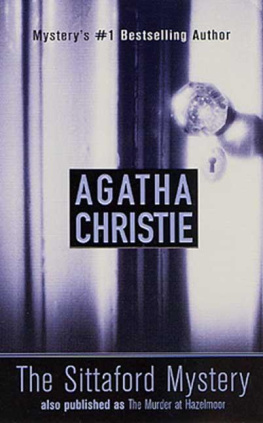
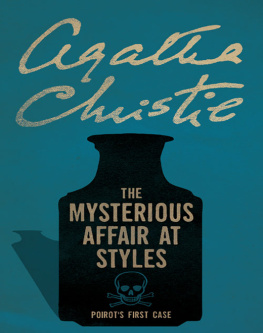
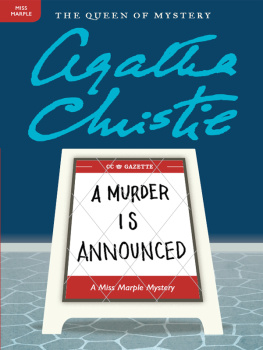
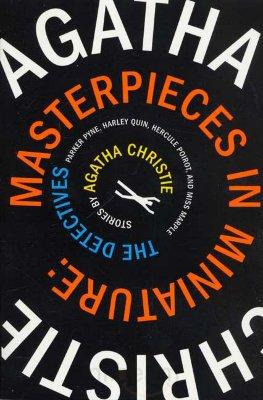
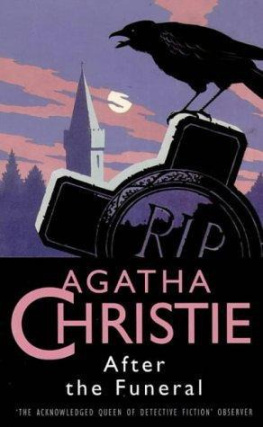
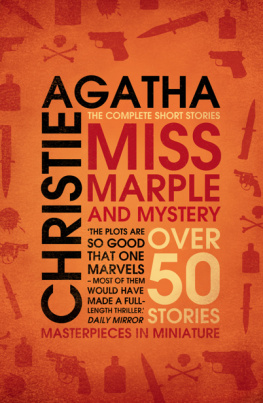
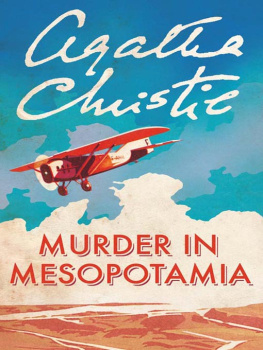
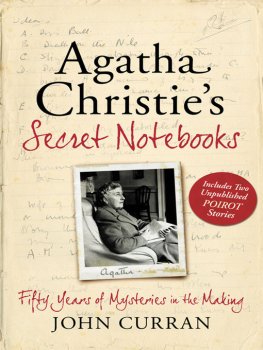

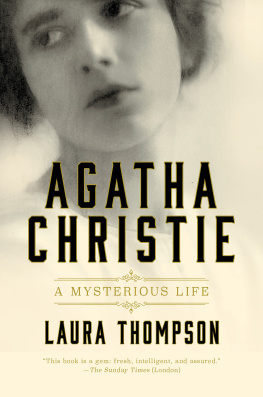

![Agatha Christie [Agatha Christie] - Problem at Pollensa Bay](/uploads/posts/book/140367/thumbs/agatha-christie-agatha-christie-problem-at.jpg)
